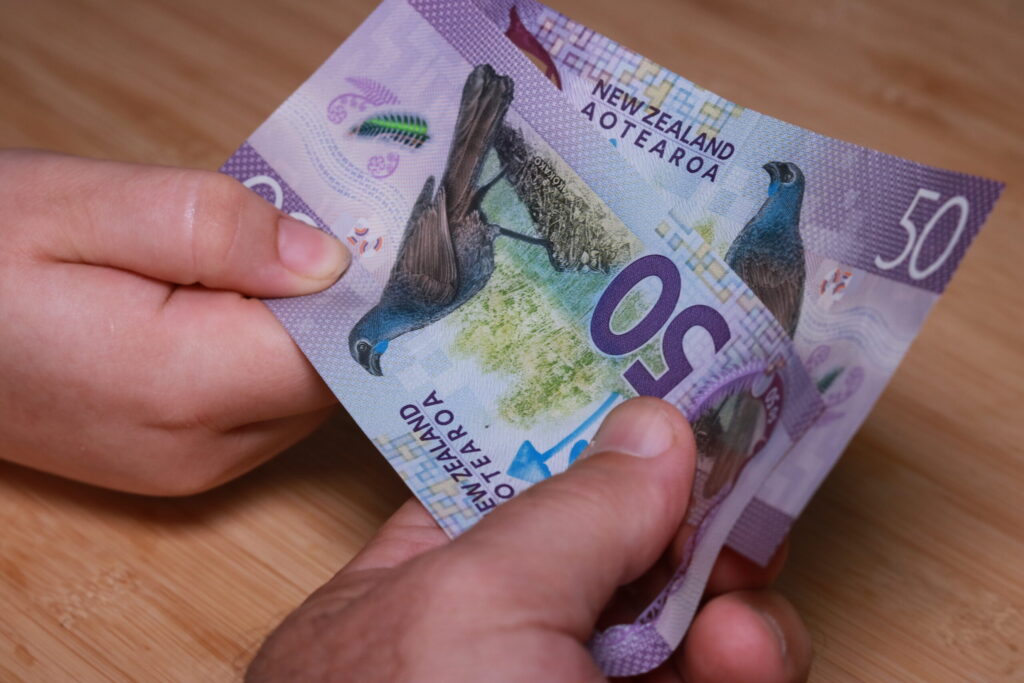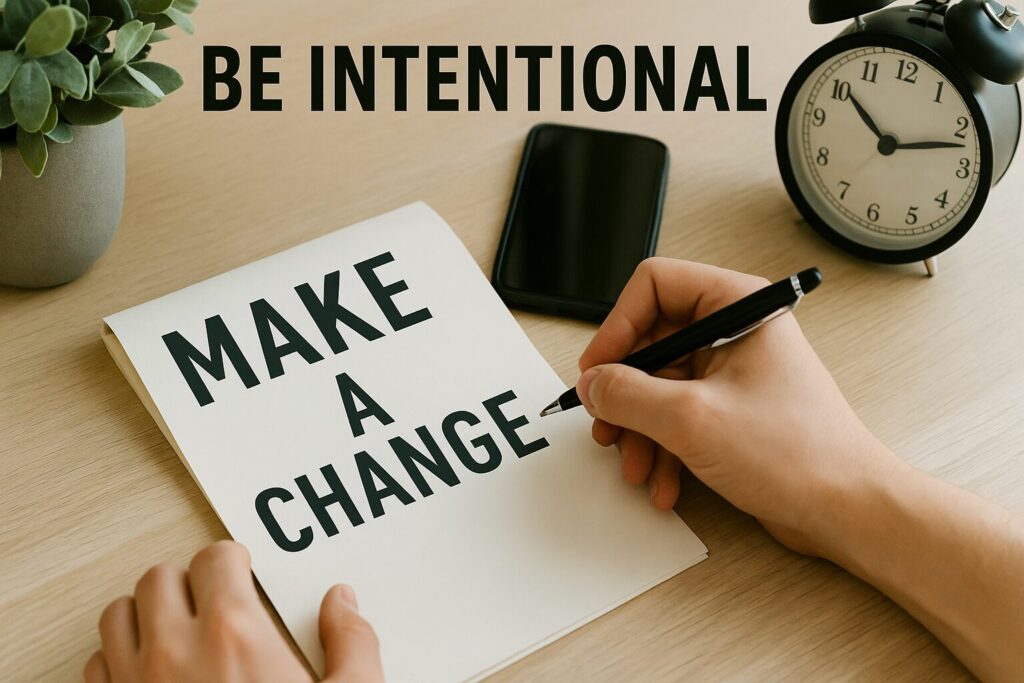Ideas from recent meetings
Scroll down to explore ideas generated during recent Talk Business networking discussions.
Every attendee brings something valuable — whether it’s something you’ve read, seen, heard, tried, or simply imagined. The strength of Talk Business comes from sharing perspectives, learning from each other and expanding the network of people who may be able to help you in some way.
Great ideas come from understanding different viewpoints and figuring out what works best for you and your business — now or down the track.

What is Personal Brand really?
Intuitively I knew that - I was going to talk to the awesome Christchurch-based team at Grant Thornton New Zealand Ltd about one of my favourite topics: Personal Brand.
Yet, I almost went against everything I stand for, and share. Against the very essence of my brand identity that I have worked so hard to build, understand, refine, and live authentically and unapologetically.
While I knew it was a rainbow tutu kind of day, I originally dressed 'down'. Don't get me wrong, there was still colour, patterns, earrings and personality; but I was 'toning me down' to fit what I thought might be more appropriate for my Professional Services audience.
Thankfully, as I was preparing for the workshop, I had my own lightbulb moment and rushed home to put a tutu on.
At its very heart, and from the great heights of my personal brand soapbox, personal brand is all about authenticity. Leadership/life can often feel like you have to fit into a certain mould - polished, perfect, and a bit impersonal.
I believe the opposite is true: the most impactful leaders are those who show up as themselves, own their story, and let their uniqueness shine through. Had I not turned up in a tutu today to talk about how powerful this is I would've been doing myself, and the Grant Thornton crew, a disservice.
We covered way too much to summarise in one post, but a teaser of the first half: - Your personal brand is NOT just your logo, your job title, your appearance, or your elevator pitch. - Your personal brand isn’t what you say it is - it IS the story people tell about you when you’re not there. - It IS how you show up consistently. You have a personal brand, and it’s out there for the world to see and experience, whether you’re shaping it intentionally or not. - People buy people. When they feel like they know who you are and what you stand for, they’re more likely to trust you. - Authenticity Beats Perfection Every Time.

What makes you happy in business?
That’s the question we asked at our last Talk Business session, and it caught some people off guard.
A surprising number hadn’t really thought about it. Not because they weren’t happy, but because they’d built a business based on what they thought would work, or what might make money, rather than what they genuinely enjoyed doing.
Some said they loved creating content, educating others, connecting with people, being flexible, or just being surprised by where the journey takes them. Others talked about experimenting, adding value, or seeing a customer light up. Then we asked why those things made them happy. The answers were varied — freedom, fun, profit, purpose, learning, and simply making a difference.
Naturally, we had to ask: what would happen if you did more of what makes you happy? It seemed like an obvious “yes” at first — more happiness must be a good thing. But things got more complicated. Because what makes you happy isn’t always what grows the business. Some people admitted that doing more of what they loved actually distracted them from what made money. Others said the happy tasks often became less enjoyable when they turned into pressure-filled responsibilities.
So the real question became, how do you do more of what you enjoy while still moving forward? That’s when the practical answers came out: being more organised, setting boundaries, managing time better, saying no more often, and having a clearer structure. Many people already knew what they needed to do — they just weren’t doing it.
Which brings us to this: doing more of what makes you happy might not always lead to success, depending on how you define it. More enjoyment doesn’t always mean more income. And strangely, it doesn’t always lead to more happiness either — especially when too much of a good thing starts cutting into your results.
So maybe the better question is this: what makes you happy in your business, and how can you do more of it while still paying the bills, growing what matters, and not burning yourself out?

Tax: Sacrifice or Success?
I want to pay more tax — do you?
Sounds mad, I know. But what if paying more tax wasn’t about sacrifice… but about success?
Before you book me in for an “assessment,” hear me out. We usually think of paying tax as a Sacrifice… But what if it’s actually a sign of Success?
If I’m paying more tax, it means I’m making more money. So really, shouldn’t we all want to pay more tax? The real question is: HOW?
Lately, I’ve been thinking — if I help more people, in ways they’re happy to pay for, I earn more… and yes, I pay more tax.
And here’s where something clicked: Small businesses often sell things people WANT. Big businesses sell things people NEED.
That shift — from selling wants to fulfilling needs — could be the difference between ticking over and taking off. It could also be the difference between staying small and contributing more. And yes, it might even make my wish to pay more tax a reality.
Of course, we’d all like to see our tax spent wisely. But if I spend too much time worrying about money I no longer own, I lose focus on earning the money I still can.
Here’s my takeaway: If I’m earning more, it means I’ve helped more people in ways that matter. I keep some. The Government gets some. And we all benefit more — per person, per community.
So Mr Taxman… by the end of the 2025/26 financial year, I hope I’m saying: “Here — want more?” What about you?

Why money is the measure
“Money is a measure of how many people you've helped” That’s a tough sell in the age of Musk and Trump — where some billionaires are, let’s say, controversial. But at its core, the idea still holds: people generally only pay when they receive something of value.
That’s a tough sell in the age of Musk and Trump — where some billionaires are, let’s say, controversial. But at its core, the idea still holds: people generally only pay when they receive something of value.
I’m not a billionaire — not even a millionaire — but I like to think I help people. Still, I sometimes wonder: could I help more people doing what I already do? Or by doing more of what they actually want from me?
Take U2. If they played a surprise gig in a pub, maybe a hundred lucky people would witness something unforgettable. But U2 wouldn’t get rich doing it.
Now put that same performance in a stadium — tens of thousands get to experience it. U2 makes millions. And so do the organisers, the crew, the caterers — everyone involved in helping it happen.
This isn’t to diminish the value of helping one person at a time. It’s just an invitation to think differently about money — and maybe about your business too.
Fun fact: I asked AI to generate an image on this theme. It literally drew a dividing line between money and helping others.
This is the kind of thing we explore at Talk Business, every Wednesday at 9am. Come along, share your thoughts, and challenge mine. Every perspective is food for thought — even if you’re Musk or Trump. 🙂

Should I shut my business
Should I Shut My Business?
Business owners make decisions all the time—but sometimes the real decision isn’t what to do or what to change, it’s whether to quit.
Part of my business has been in decline for over a decade. I kept it profitable as I got better at running things, but over the last year or two, I’ve started to wonder: could I be having more fun—and maybe making more money—doing something else?
Shutting down a business isn’t failure. It’s like pruning a tree. You’re not killing the branch—it’s already withering. You’re just letting the nutrients flow where they’re needed most.
These are some of the topics at Talk Business, every Wednesday 9am, see website for details talkbusiness.co.nz or PM me. Everyone welcome.

Outsource more to upscale more
There’s only ONE of you… but there could be more!
No matter how hard you work, you can only ever do the work of one person.
In a small business, you might be the boss, the receptionist, the admin clerk, the cleaner, the plumber, the painter, the courier — the everything. There’s only so much you can do, and only so many hours in a day. There’s a limit to what you can do, and a limit to what you should be doing.
You can’t scale you, but you can scale who works with you. Outsourcing — and no, I don’t mean offshore manufacturing or a call centre — is about letting others do the things you don’t need to be doing, aren’t good at doing, or go mad trying to do.
We outsource every day, often without realising it. I do lots of things, but I don’t fix my car (that’s the mechanic), I don’t collate my accounts (my accountant does that), I don’t deliver parcels (the courier), and I don’t make my stock (I leave that to artisans). And my car, my accounts and my customers are all the better for it.
But how many other things could I be paying someone else to do? I still do my own website (you can tell), my graphic design, social media, packing, posting, cleaning — and even coaching (yes, I talk to myself). But all of those things — and more — could be outsourced. For what benefit?
I’m always working late because I have no time.
Maybe I’m afraid of losing control, of lowering my standards, or of dealing with people who don’t deliver.
Maybe I feel like I should know how to do it all.
Maybe I don’t think I earn enough to outsource — without stopping to think how much more I could make with that extra time.
But here’s the thing: outsourcing allows someone who’s better skilled, more experienced, and probably more interested to take on the job. I become the customer. The burden (or the opportunity to shine) shifts to them. We spend less time working in our business, and more time working on it — spotting opportunities, helping more people, and yes, making more money. Win-win!
Outsourcing doesn’t have to be expensive. And we don’t have to do everything ourselves. Maybe it’s time to think about what you could outsource — and what you’d do with that freed-up time. How would your business benefit from greater focus and better strategy?
Here’s a suggestion: - Look at how you spend your time each week. - What tasks are you doing? - Do they really need you? - Would you work for someone else doing that job? - How much would it cost to outsource it — and is that more or less than what your time is worth?
If you want your business to be bigger and better…
Maybe it’s you that’s limiting how big and how much better it gets.

Introducing yourself at networking events
When introducing yourself in a networking setting, it's tempting to list what you do or the tools you use. These are features. But what really grabs attention and creates connection is talking about benefits.
Benefits are the results and improvements others experience because of what you do.
"People don't want to buy a quarter-inch drill. They want a quarter-inch hole."— Theodore Levitt, Harvard Business School
In other words, talk about the outcome, not the process.
Features = What you do or how you do it.Benefits = What someone gains from it.
Examples:
Feature: I design websites.Benefit: I help businesses attract more customers online.
Feature: I’m a personal trainer.Benefit: I help people feel better, move better, and stay motivated.
Sentence Starters to Practice (Focus on Benefits):
"I help people..."e.g., "I help people feel more confident in front of a camera."
"I work with [who] to [do what]..."e.g., "I work with small businesses to simplify their marketing."
"I make it easier for people to..."e.g., "I make it easier for people to protect their IP without legal headaches."
"I solve the problem of..."e.g., "I solve the problem of tradespeople not getting paid on time."
"If you're struggling with [pain], I..."e.g., "If you're struggling with website traffic, I help turn browsers into buyers."
"My clients get [outcome] without [frustration]..."e.g., "My clients get better sleep without turning to medication."
"I take the stress out of..."e.g., "I take the stress out of sorting through inherited estates."
"People come to me when they..."e.g., "People come to me when they’ve hit a wall with social media."
Tips for Crafting a Strong Introduction:
Keep it under 20 seconds
Use everyday language
Focus on what people get from working with you
Show empathy and usefulness
Practice these and tweak as you go. You'll find what sticks and what sparks curiosity.

Why don't we just make those changes?
Are you intentional? A group of business enthusiasts were asked what small change would make a big impact and why haven't you done it?
When you hear the changes there's really no surprises - seems we all know what to do but we just don't do it.
We know that being more focussed would help, reviewing our week, writing things down more so we remember them, creating a to-do list or a to-don't list, go to bed earlier, get a tutor or mentor or someone to check-in with, finish one task before starting another, or developing a "just do it" mindset - but we don't. If only we could turn that around.
Apparently, there's a lot of reasons we don't "just do it". Maybe it's not interesting or exciting enough or we procrastinate, listen to that negative self-talk without challenging it, we don't have enough money or knowledge or time, we see fear, we have a victim mentality, surrounded by the wrong people that lead us astray or doubt us - any of this sound familiar?
The thing, we are more comfortable doing what we are doing that doing something else. Good can stop us achieving the great. So what can help?
According to our group - three things: 1/ more discipline - showing up for yourself 2/ creating space, mental or physical, so we have the "room" to progress (maybe my cleaning isn't really procrastination after all) and 3/ being intentional - deciding what matters and making better choices.
Sometimes you don’t need to do more. You just need to stop long enough to see what’s getting in the way.
Now it's your turn: What’s one small change you know would help—if you actually did it? And what’s really stopping you? Let us know.
